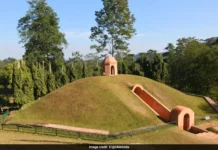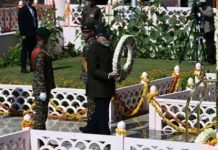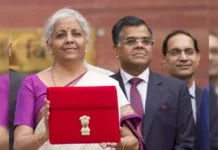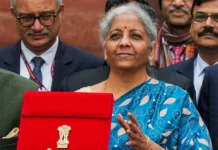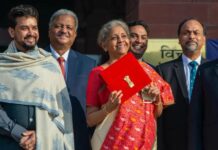 NEW DELHI: There will be a flurry of visits to India by a number of foreign dignitaries in the next few days which include Saudi Arabia’s Crown Prince Salman bin Abdulaziz Al Saud, Iranian Foreign Minister Mohammad Javad Zarif and Russia’s Deputy Prime Minister Dmitri Rogozin.
NEW DELHI: There will be a flurry of visits to India by a number of foreign dignitaries in the next few days which include Saudi Arabia’s Crown Prince Salman bin Abdulaziz Al Saud, Iranian Foreign Minister Mohammad Javad Zarif and Russia’s Deputy Prime Minister Dmitri Rogozin.
Al Saud, who is also Saudi Arabia’s Deputy Prime Minister and Defense Minister, will arrive here on February 26 on a three-day visit.
It will be the highest level political visit to India from Saudi Arabia after the landmark visit of King Abdullah bin Abdulaziz Al Saud in January 2006. The visit is aimed at further strengthening ties between the two countries.
Saudi Arabia is India’s fourth largest partner with bilateral trade recording USD 43 billion in 2012-13. Saudi Arabia is also India’s largest crude oil supplier accounting for about one-fifth of our total imports in 2012-13, the spokesman in Ministry of External Affairs said.
Indians form the largest expatriate community in Saudi Arabia and their contribution in the progress and development of their host country is well recognized. There are over 2.88 million Indian nationals presently working in Saudi Arabia.
The Crown Prince will be accompanied by a high-level delegation including cabinet ministers, senior officials and captains of industry.
During Prime Minister Manmohan Singh’s visit to Riyadh in 2010, both countries had decided to elevate the bilateral engagement to ‘Strategic Partnership’ covering security, economic, defense and political areas.
The Crown Prince will call on President Pranab Mukherjee and meet the Prime Minister and Vice President M Hamid Ansari.
In recent years, there has been significant progress in bilateral cooperation in key areas of mutual interest, including energy security, trade and infrastructure development projects.
Iranian Foreign Minister Zarif will arrive here on February 27 on a two-day visit. He is expected to hold talks with External Affairs Minister Salman Khurshid on a range of bilateral, regional and international issues of mutual interest. . Asked about reference made to Jammu and Kashmir by the Organization of the Islamic Conference in its recent meeting which was attended by Saudi Arabia, the MEA spokesman said India has repeatedly said the group has no locus standi as far as the issue of Jammu and Kashmir is concerned.
“As far as we are concerned, we do not think that an organization which has no direct relevance to what is happening in Jammu and Kashmir needs to take a view on that,” he said.
He said Russian Deputy Prime Minister Rogozin will arrive here On February 26. This will be the first high-level visit from Russia following the summit meeting between President Vladimir Putin and Prime Minister Manmohan Singh in October last year.
His talks with Indian leaders are likely to focus on energy, trade and business and cooperation in space technology.
Dmitry Mezentsev, Secretary General of the Shanghai Cooperation Organization, will also visit India from February 23 to 25. He is visiting India as part of his outreach program.
Mezentsev is likely to hold talks with the External Affairs Minister and Foreign Secretary Sujatha Singh.
India has been an observer at the SCO since 2005 and has generally participated at the ministerial-level at summits.
SCO focuses on security and economic cooperation in the Eurasian space.
The precursor of the SCO was the “Shanghai Five” constituted by China in 1996 to address border security issues with four of its neighbors.
In its present form, SCO was founded at a summit in Shanghai in 2001 by the Presidents of Russia, China, Kyrgyz Republic, Kazakhstan, Tajikistan and Uzbekistan.
India, Iran and Pakistan were admitted as observers at the 2005 Astana Summit. The Tashkent SCO Summit in June 2010 lifted the moratorium on new membership, paving the way for expansion of the grouping.
India has been actively involved in SCO activities and working closely with SCO member states. It has indicated willingness to play a more constructive and larger role in the SCO as an when SCO decides to expand.–PTI

